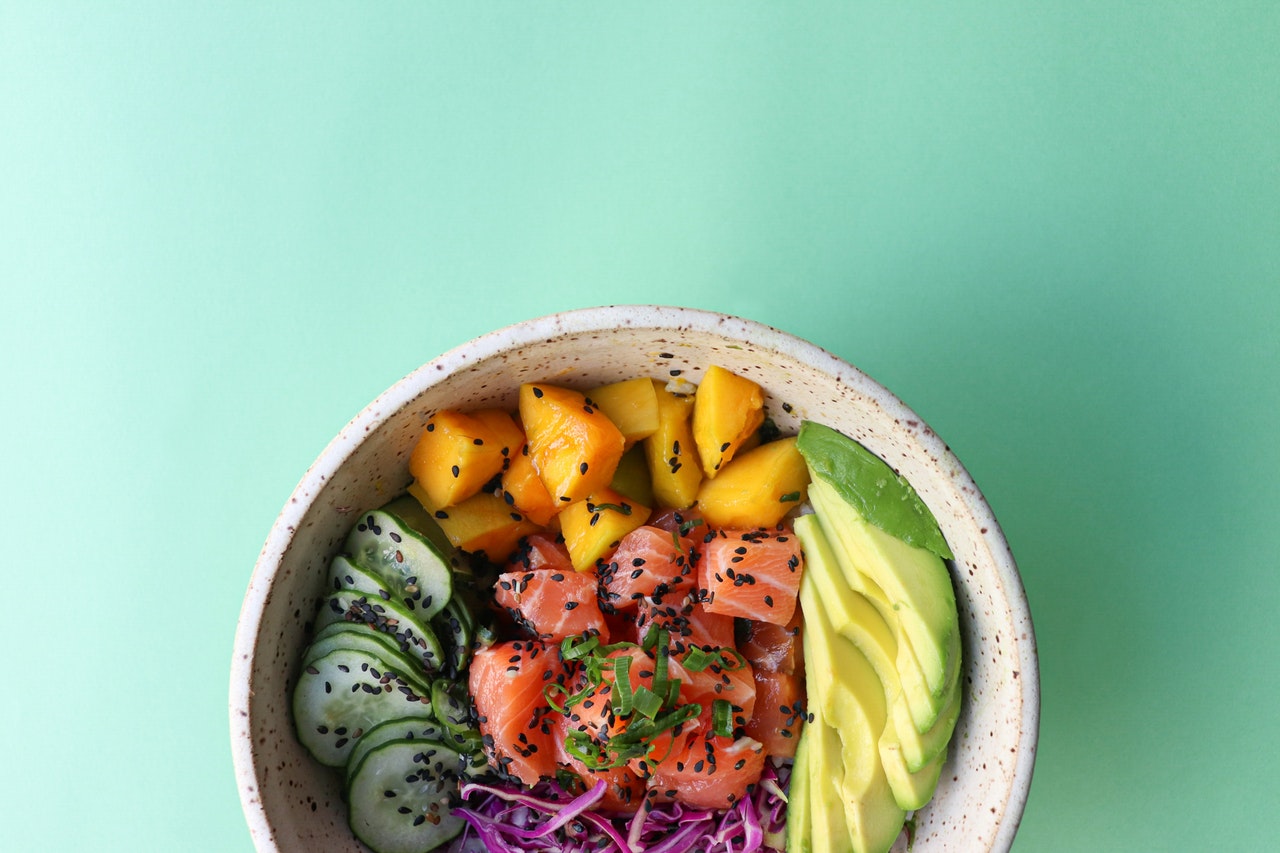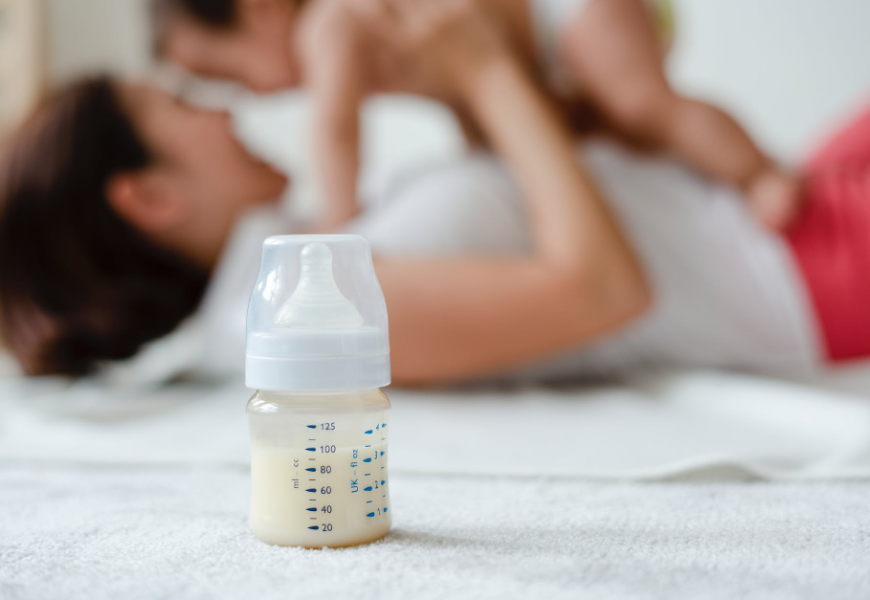Breastmilk is the best source of diet for infants. It is au natural and smart as the composition of breastmilk adjusts according to baby’s nutritional needs for his development. If baby is unwell, breastmilk magically receives the message from baby’s saliva, and the antibodies adjust to help nurse baby back to health.
As a second-time mum, I remember the long nights breastfeeding my elder son. I tried to increase and maintain my milk supply too, and realised that many mums face the same concerns. So, here are some tips to help boost your milk!

1: Latch more frequently
Your baby is the best breast pump! During the early weeks, you can establish the breastmilk supply by nursing often, ensuring that breasts are emptied. Remember that breastmilk production works on a demand and supply equation – the more baby suckles, milk production is stimulated and increases accordingly to meet his needs.
2: Pump in between feeds
Most newborns are really sleepy – babies falling asleep during nursing is pretty common. Some babies don’t feed as often, while others are still learning to latch well. If latching hurts and is a concern, do consult a Lactation Consultant to ensure latching is done right. Some babies may also be born with a tongue tie, and this can be identified and corrected to improved latching. Meanwhile, use a good breast pump with the right flange size for you. Expect to pump between 8 to 10 times in 24 hours. Store expressed excess milk in bottles or storage bags which you can offer to baby after returning to work or when someone else is helping to care for him.
Jenelle’s breastfeeding tips: Don’t forget to pump at least once between 1am to 4am as our prolactin levels are highest – best way to leverage on the milk-making hormone to boost supply.
3: Drink plenty of fluids and have a balanced diet
Health Promotion Board (HPB) advised that “88% of breast milk is water. Breast milk volume increases from as little as 50 ml on the first day, to as much as 750 ml a day, when breastfeeding is well established.” Nursing mums should be drinking at least 1.5-2 litres of water daily. Have soups, or other drinks to stay hydrated. Here are some confinement myths I refused to follow too! Eating healthy meals and snacks also helps with postpartum recovery and tackle our new motherhood role.

4: Eat milk-boosting foods
It might take some trial and error for mums to find out which foods help to increase breastmilk. Some foods that nursing mums share that work for them are: oats, salmon, cod fish, salmon sashimi, dark green leafy vegetables, avocadoes, sweet potatoes, hot drinks like Milo, milk tea and green tea and red dates longan tea.
Some breastfeeding mums in Singapore also reach out to lactation cookies to boost their supply. Thanks to the Brewer’s yeast, flax seeds, fenugreek and rolled oats in these lactation bakes, many mums get their supply flowing with a burst of delicious energy. You can shop for these brands of lactation cookies, brownies and overnight oats in Singapore:
- Singapore Lactation Bakes
- Milking Cow
- Shan’s Lactation Cookies (gift this to my mummy clients after their delivery.)
- Clookies
- Cookie4Milk
- Raine Bakes
- Cookiedealersg
- Pam’s Lactabites
- M3 Lactation Cookies
- Marian’s Lactation Boost
- LactaByHardies
- PreggerCookies
At the hospital, you might also be familiar with the popular Green Papaya Fish Soup. Thomson Medical has kindly shared the Green Papaya Fish Soup recipe so mummies or their confinement nannies can make them at home too! For convenience, simply order from the hospital as they deliver cooked meals too.
5: Consider supplements that increase milk production
If you prefer supplements, look out for ingredients like Fenugreek, Blessed Thistle or the superfood Moringa. These are traditionally known to improve breastmilk production. Caffeine-free nursing teas are popular among lactating mothers too.
6: Take your prenatal vitamins
Making food for your baby burns plenty of energy and calories. Thus, it is important to eat well so your body gets sufficient nutrients. A mum’s wellbeing is very important too, so don’t neglect that. Nursing mums need 1,000mg of calcium daily. Are you able to obtain that through food? Otherwise, do consider calcium supplements. Also, Omega-3 DHA is present in our breastmilk and transfers to our baby too. Would be good to take some Omega-3 DHA supplements, mama!

7: Massage your breasts
Before latching or expressing, gently massage your breasts to clear any blockage and encourage let downs. These days, you can also use a lactation massager or engage an experience lactation masseur to help get your liquid gold going.
8: Don’t be too stressed out
Anxiety and stress can affect milk flow. This can happen when we’re in a hurry to pump, or wish to hurry baby through his feeds. A tensed-up body affects milk flow which then makes one more upset and the cycle continues. Stay calm and take deep breaths, mummy.
9: Have enough sleep and rest during the day
“Sleep when your baby is sleeping” – you might have heard this countless times, and there is really some truth to it. There are tons of benefits of breastfeeding for mummy and baby, but at the same time, nursing can be tiring. Be sure to have sufficient rest as it does wonders for your mind while your body regulates the milk production too.
I know that breastfeeding can be challenging for some mummies, and we do what we can and remember that nursing our baby is just a small component of this motherhood journey. Fed is best, and for whatever reasons that mummy decides not to breastfeed and offer formula milk instead, there should be no judging. Do share other tips that have worked for you to increase breastmilk!



